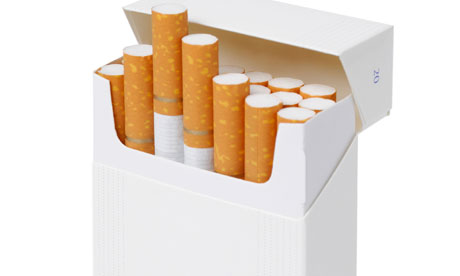While some smokers may oppose plain packaging on cigarettes, many come to accept and even support such initiatives after they are implemented, says new Australian research.
 Plain packaging on tobacco products is still being debated here in New Zealand, but in Australia the plain packaging legislation was introduced in 2012.
Plain packaging on tobacco products is still being debated here in New Zealand, but in Australia the plain packaging legislation was introduced in 2012.
Now a new study published in Tobacco Control has examined how smokers attitudes to plain packaging changed following the law change, drawing on extensive survey data. Analysis of the results showed that support for plain packs increased significantly after they were implemented, rising from 28.2% pre implementation to 49% afterwards.
The authors said their findings indicated that it was likely that the implementation of such a policy elsewhere would come to be accepted by smokers in other countries.They concluded: “Support for plain packs has greatly increased among Australian smokers since the implementation of the policy, with now only a minority of smokers remaining opposed,
The SMC collected the following expert commentary. Feel free to use these quotes in your reporting. If you would like to contact a New Zealand expert, please contact the SMC (04 499 5476; smc@sciencemediacentre.co.nz).
Prof Janet Hoek, Department of Marketing, University of Otago, comments:
“[The authors] report findings from the International Tobacco Control study; this longitudinal study has a rigorous design that enables the researchers to detect changes within a cohort of smokers and recent quitters.
“The study examined attitudes to plain packaging using data from four time points prior to the policy implementation in 2012, and one time point post-implementation; it represents the first such analysis of plain packaging. As the authors take care to note, plain packaging involved two distinct changes to tobacco packaging: the brand livery was removed and replaced with a dissuasive murky brown colour, and the pictorial warning labels on the front of packs were refreshed to include new warning messages and images, and increased in size from 30% to 75% of the surface.
“The study’s findings are important for at least two reasons: first, the analyses reported are very rigorous and the researchers took considerable care to control for other variables that could influence change in support for plain packaging. We can thus feel confident that the changes reported are due to changes in support for plain packaging with larger, refreshed warnings, rather than changes in some other variable. Second, the findings show a remarkable increase in support for plain packaging; support roughly doubled from 28.2% pre-implementation to 49% post-implementation while opposition declined sharply from 56.4% (pre) to 34.7% (post).
“The study also shows that smokers who were more interested in quitting were more likely to support plain packaging, and, importantly, more likely to make quit attempts following the policy implementation. We know the vast majority of smokers regret having started smoking and would like to be smokefree; this finding indicates that plain packaging, with larger warnings, may support these smokers by stimulating and affirming quit attempts. However, the researchers require an additional data wave before they can analyse what effect plain packaging has had on quit attempt outcomes (for example, are these sustained for longer, more likely to succeed, have a reduced likelihood of relapse). The ITC cohort will provide a unique opportunity to address these questions when future data waves become available.
“As the authors note, the change in support from pre- to post-policy implementation they have documented has been observed in response to other policies. The findings are particularly important to New Zealand politicians because they challenge claims tobacco companies have made that plain packaging will victimise smokers. In fact, it appears smokers who want to quit welcome plain packaging because they believe it will help them achieve this goal.”